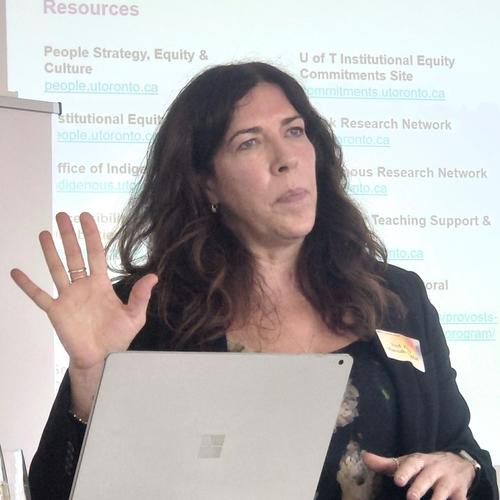Prof. Dr. Kelly Hannah-Moffat: DiGENet International Guest 2024
Prof. Kelly Hannah‑Moffat currently serves as Vice‑President for People Strategy, Equity, and Culture at the University of Toronto, where she guides institution-wide policy and programming to foster inclusive workplace environments. In this capacity, she oversees equity frameworks, leadership development, and systemic cultural change initiatives—ensuring talent and workplace equity are structurally embedded within Canada’s largest university. Her leadership extends to the integration of data-informed dashboards for monitoring diversity metrics, as well as the mandatory EDIB components in leadership training—core tools in shaping accountable, transparent university governance. As an academic, Hannah‑Moffat is a respected criminologist and professor in the Centre for Criminology & Sociolegal Studies at University of Toronto. Her research intersects risk management, intersectionality, algorithmic governance, and institutional accountability. She has critically examined how policies and automated systems reproduce social inequalities, and how institutional risk frameworks can exclude marginalized groups—prioritizing social justice and equity through rigorous empirical analysis. Her dual role ensures scholarship directly informs practical equity strategies on campus.
Prof. Kelly Hannah‑Moffat was invited as a DiGENet International Guest because her career exemplifies the rare and impactful combination of academic depth and institutional leadership in the field of diversity, equity, and inclusion. Her work bridges critical social science research with executive-level policy implementation, making her a uniquely valuable interlocutor for DiGENet’s mission to promote evidence-based diversity strategies in complex academic environments. With a focus on structural inequality, organizational accountability, and intersectional approaches to governance, she offers both theoretical insight and proven tools for institutional transformation—central concerns for DiGENet’s interdisciplinary and strategy-oriented network. Central to her stay was the high-level strategy workshop “From Inclusion to Belonging”, co-hosted by the Berlin University Alliance and Berlin Research 50. Addressing 42 academic leaders and DEI strategists, Prof. Hannah-Moffat led a keynote and working session that emphasized leadership accountability, iterative strategy, and institutional trust-building. Using case studies from key Berlin institutions, she guided participants in identifying persistent structural challenges and formulating scalable solutions—ranging from tiered service models and inclusive communication strategies to mechanisms for sustainable leadership engagement. Prof. Hannah-Moffat’s presence also catalyzed exchange with key governance bodies at Charité and Humboldt-Universität zu Berlin, where she engaged in policy dialogues with presidential leadership, gender equity committees, and DEI task forces. Her visit marked a significant moment in DiGENet’s internationalization strategy by translating intersectional research into actionable policy recommendations—affirming the value of global exchange for institutional transformation.


